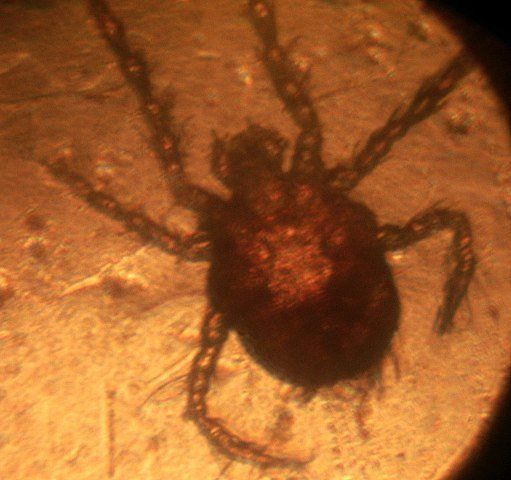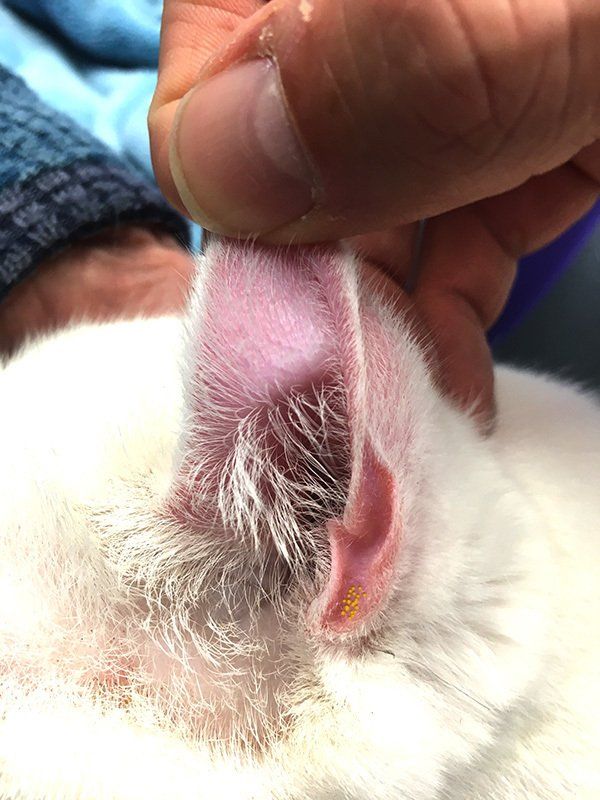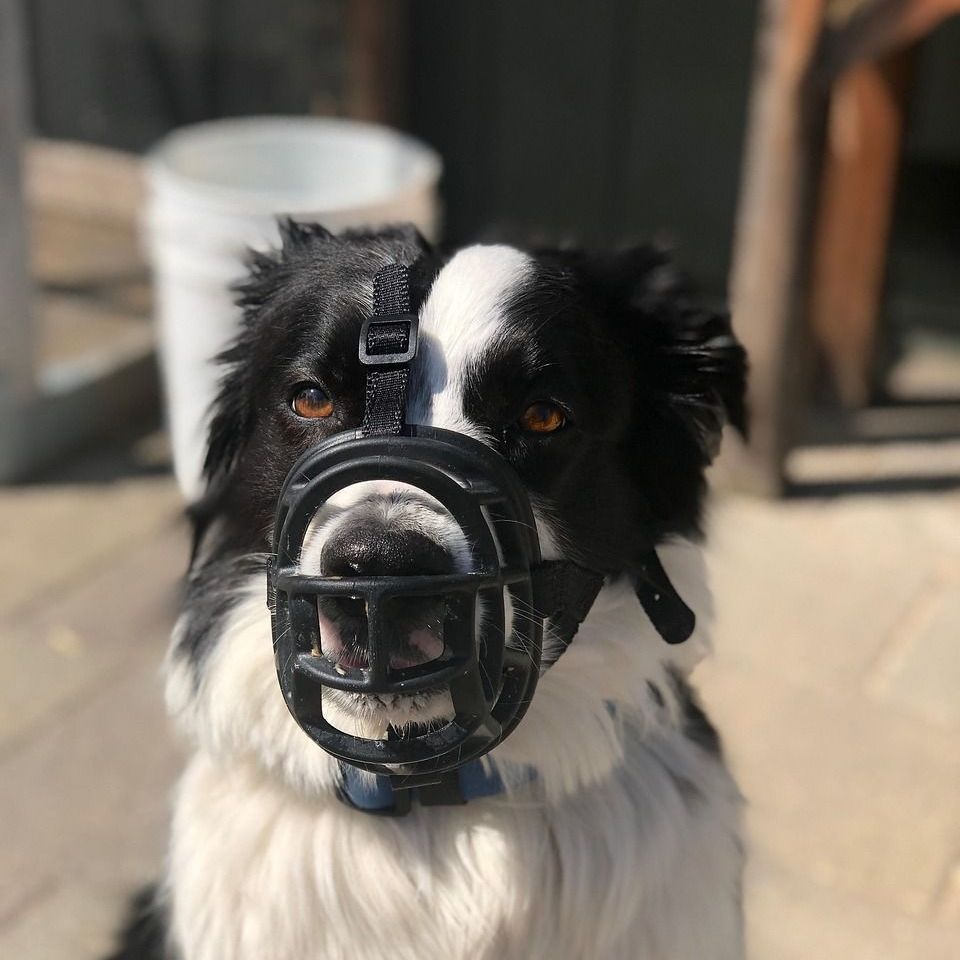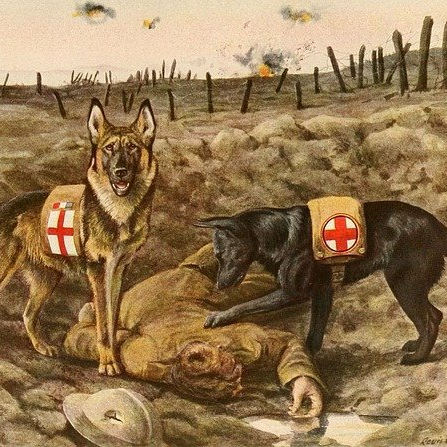Harvest Mites
Website Editor • October 4, 2019
Autumn "Hitch-Hikers" that can be bothersome for your pet...

Harvest mites
(Neotrombicular autumnalis) are a strange external parasite that can affect dogs and cats and usually only at this time of year. The name "Harvest Mite" has come about due to the short season that they seem to appear for is usually around, or just after the typical harvest time - ie late summer, early autumn. We typically see them between September and November.
How are they caught?
Harvest mites are usually "picked-up" from the environment. The larvae tend to crawl up blades of grass and await a passing host (dog or cat) and then they grip on and attach. They will feed over several days and then drop off to continue their development into adult mites. This means that it is only the nymph stages that can cause problems. It is also possible for them to spread from animal to animal in close proximity too.
What do they look like?
The six-legged Harvest mite nymphs are surprisingly large and can often just about be seen with the naked eye. They are also BRIGHT ORANGE
which can also make them easy to spot. They tend to cluster in specific locations and this can often cause localised irritation.
- In the little pocket on the ear flap (called Henry's Pocket) that is on the front edge of most dogs/cats ears.
- In between the toes above the webbing.
- Around the nipples (particularly cats)
- In the fold of the elbows and the chest.
We can often be suspicious of Harvest Mites in animals that don't have any long-term history of itching that seem to start having problems at this time of year! We don't always have to find the mites on the animal to be suspicious!
Do they need treatment?
Not always! We do find that animals can react in a variety of ways. Sometimes we find the mites and the animals are showing NO SYMPTOMS at all, and in others they can be really struggling with an intense itch reaction to the mites. The majority of regular parasite treatments don't seem to be effective at treating/preventing Harvest Mites - however the common flea preparation Fipronil
when applied as a Spray (NOT the spot-on) will often work very well.
Some animals may need extra treatment with anti-inflammatory steroids or anti-histamine drugs if they react badly to the mites. However, if you do nothing at all, they will eventually disappear again after a few weeks and the problems will disappear.
For further advice on this, or any other aspect of your pet's health, then please feel free to give us a ring to make an appointment!

In the second of her series looking at the role of animals in war, vet nurse Meg Gardner looks at life in the
trenches for the men and dogs of Twenty-two Company King’s Fusiliers. An uncompromising tale of life on the front line in 1916, as told from the perspective of the dogs who lived and worked alongside the soldiers of the British Forces. A tale of loyalty and friendship, hardship and loss. As both men and dogs face the horrors of warfare, an unexpected arrival in the trenches shows both dogs and men the value of compassion.












